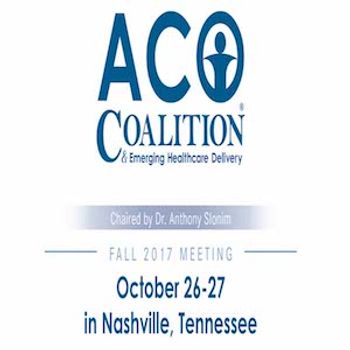
An analysis using mixed quantitative and qualitative methods, as well as site visits to 7 US oncology practices, identified 13 attributes within 5 themes that potentially contribute to high-quality care at a relatively low total cost.
Jaime is a freelance writer for The American Journal of Managed Care® (AJMC®), where she previously worked as an assistant editor.
She has a BA in print journalism from Penn State University. You can connect with Jaime on LinkedIn.

An analysis using mixed quantitative and qualitative methods, as well as site visits to 7 US oncology practices, identified 13 attributes within 5 themes that potentially contribute to high-quality care at a relatively low total cost.

Most US adults would prefer to find other ways to manage their pain, such as neck or back pain, before taking prescribed pain medication, a Gallup research brief found.

With the growing shift to community-based and patient-centered care, the National Quality Forum (NQF) and the Center to Advance Palliative Care (CAPC) have launched initiatives to ensure that patients with serious illness receive safe, effective, and high-quality care. At the same time, professionals in the healthcare industry are highlighting the importance of integrating this type of care into the oncology practice.

As part of US Antibiotic Awareness Week and World Antibiotic Awareness Week, the CDC has updated its educational effort to promote safe antibiotic prescribing and use through Be Antibiotics Aware: Smart Use, Best Care. The platform includes information on antibiotic misuse, resources for all audiences, and activity ideas to promote the effort.

Authors of the study found that the mean total, chemotherapy, and physician costs were all lower in community settings compared with hospital-based settings for patients with breast, lung, and colorectal cancer. There were also fewer emergency department visits both 3 and 10 days following treatment.

Researchers studied tweets from people with ADHD to identify factors like personality and posting frequency, which may hold clues to understanding and treating patients with the disorder.

A study published in JAMA analyzed 155 health conditions, 36 age and sex groups, and 6 types of care to determine the impact of population growth, population aging, disease prevalence or incidence, service utilizations, and service price and intensity on healthcare spending increases in the United States from 1996 to 2013.

Most studies on the potential of marijuana, classic hallucinogens, 3,4-methylenedioxymethamphetamine, and ketamine have been small with methodological flaws, but the promising results from existing studies suggest that larger studies are warranted, said William M. Suavé, MD, medical director, Greenbrook TMS NeuroHealth Centers, during a presentation on the therapeutic potential of illicit drugs.

During a session at the 2017 Neuroscience Education Institute (NEI) Congress, Ira D. Glick, MD, professor emeritus, Department of Psychiatry and Behavioral Sciences, Stanford School of Medicine, emphasized the importance of combining psychological and psychopharmacologic strategies for patients with Axis I disorders and provided guidelines for administering the combination.

Roger S. McIntyre, MD, FRCPC, professor, Departments of Psychiatry and Pharmacology, University of Toronto, and of the Head, Mood Disorders, Psychopharmacology Unit, University Health Network, discussed the contributing factors and effects of misdiagnosing or inappropriately treating patients with antidepressants.

During a session on distinguishing between bipolar disorder and attention-deficit/hyperactivity disorder, David W. Goodman, MD, FAPA, assistant professor, Department of Psychiatry and Behavioral Sciences, Johns Hopkins School of Medicine, and director and founder, Adult Attention Deficit Disorder Center of Maryland, explained that many of the symptoms for the 2 disorders overlap.

A panel of doctors at the 2017 Neuroscience Education Institute (NEI) Congress discussed the impact of losing a patient to suicide and how they deal with it.

At the 2017 Neuroscience Education Institute (NEI) Congress, a Friday session focused on the physiology of fear and its impact on wellness. It was presented by Mary D. Moller, PhD, DNP, ARNP, PMHCNS-BC, CPRP, FAAN, associate professor, Pacific Lutheran University School of Nursing, and director of Psychiatric Services, Northwest Center for Integrated Health.

Exercise, diet, sleep, and hearing are 4 major factors that impact our aging, said Stephen M. Stahl, MD, PhD, adjunct professor of psychiatry, University of California San Diego during a session at the 2017 Neuroscience Educational Institute (NEI) Congress.

A session at the 2017 NEI Congress emphasized the importance of making an accurate diagnosis in patients presenting symptoms of depression.

Only 1 in 3 patients will achieve remission on their first antidepressant, and 67% of patients require 4 antidepressant trials before symptoms remit, said Thomas L. Schwartz, MD, during a session on strategies for switching, combining, or augmenting treatments for patients with major depressive disorder.

There is no known gene for any major psychiatric disorder, nor is one ever likely to be found, explained Stephan M. Stahl, MD, PhD, adjunct professor of psychiatry, University of California San Diego, during an overview of the age of personalized medicine and the role of pharmacogenetics at a session of the 2017 Neuroscience Education Institute Congress.

According to evidence gathered by the American Society of Clinical Oncology (ASCO), alcohol consumption is linked with an increased risk of cancer and can negatively impact cancer treatment.

As the idea of accountable care gains traction worldwide, there are challenges participating physicians and organizations face. An article in Health Affairs introduced a comprehensive framework for implementing the healthcare model and provided 3 approaches for implementing accountable care utilized by 3 different countries.

With the ACA putting emphasis on preventive care, there has been an immediate increase in breast and coloreactal cancer screenings. A recent study found that incidence rates of early-stage breast and colorectal cancer increased in 2014, but did not vary for late-stage breast and colorectal cancer.

Following the transition year and ahead of the full implementation in year 3, CMS made provisions to the Quality Payment Program to make it easier for clinicians to participate in the program, reduce burden, and to get clincians ready for full implementation.

Increased fiber, especially from cereal, intake after the diagnosis of non-metastatic colorectal cancer (CRC) is associated with lower CRC-specific and overall mortality.

The reform will adjust payment for drugs purchased through the program, relieve some burden for rural hospitals, and exempt rural sole community hospitals, certain cancer hospitals, and children's hospitals.

While current, prior, and change in the Kansas City Cardiomyopathy Questionnaire score were all significnatly associated with lower risk of mortality and heart failure hospitalization in isolation, when the current score was included with either prior or change score, only the current score was significantly associated with lower risk for all-cause mortality.

Black men have the highest prevalence of intracranial atherosclerotic disease (ICAD) and the highest frequency of multiple plaques, a new study has found.

Mantle cell lymphoma is an aggressive type of non-Hodgkin lymphoma. Acalabrutinib (Calquence) is a kinase inhibitor that works by blocking an enzyme the cancer needs to multiply and spread.

Results of the 70-gene signature assay strongly influence physician's treatment recomendations for patients with early breast cancer who were classified as intermediate risk by the 21-gene assay.

Premiums for silver plans will rise substantially more than bronze and gold plans due to many states’ insurers loading the cost from the eradication of the cost-sharing reduction payments in the tier, according to an analysis by The Henry J. Kaiser Family Foundation.

A new study found that the global cancer burden in young adults differs from that in younger and older age groups and was more common in women.

At the fall ACO & Emerging Healthcare Delivery Coalition®, Clay Alspach, JD, principal at Leavitt Partners, discussed navigating the current political and payment reform landscape, making sense of the uncertainty, and preparing for the unexpected.

259 Prospect Plains Rd, Bldg H
Cranbury, NJ 08512
© 2025 MJH Life Sciences®
All rights reserved.
